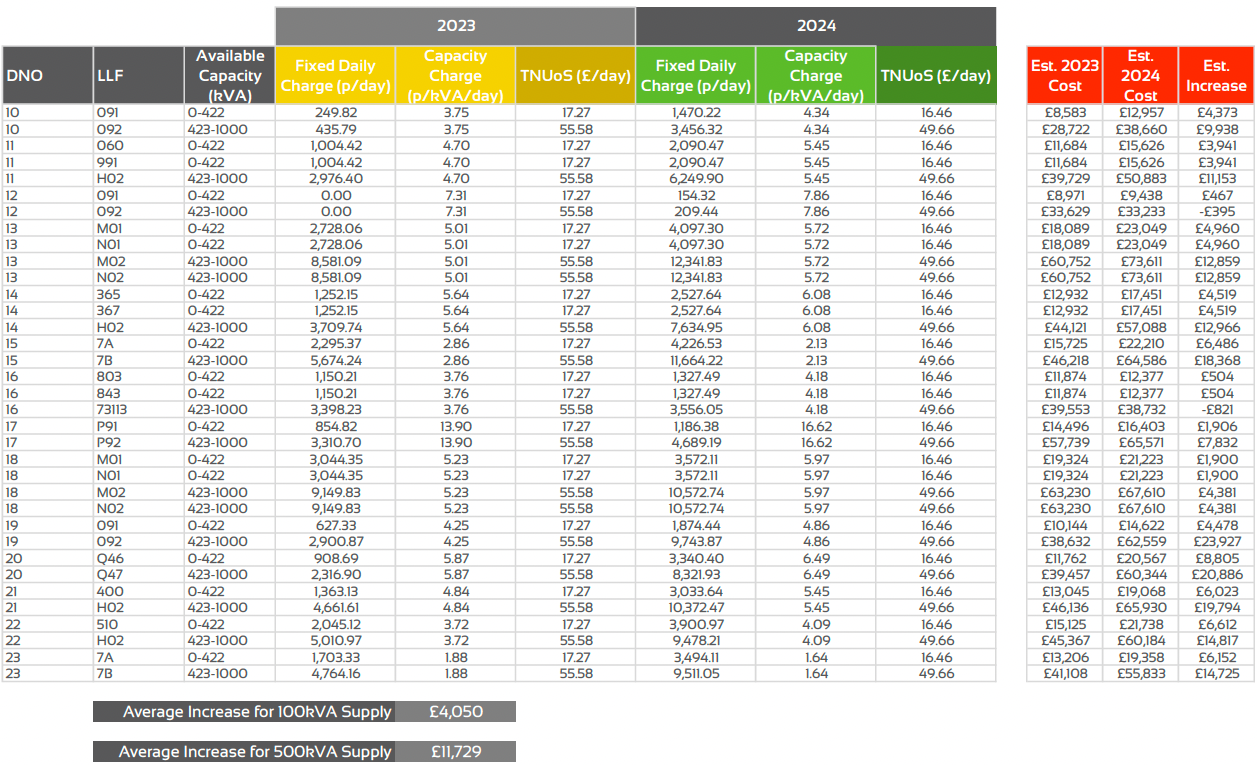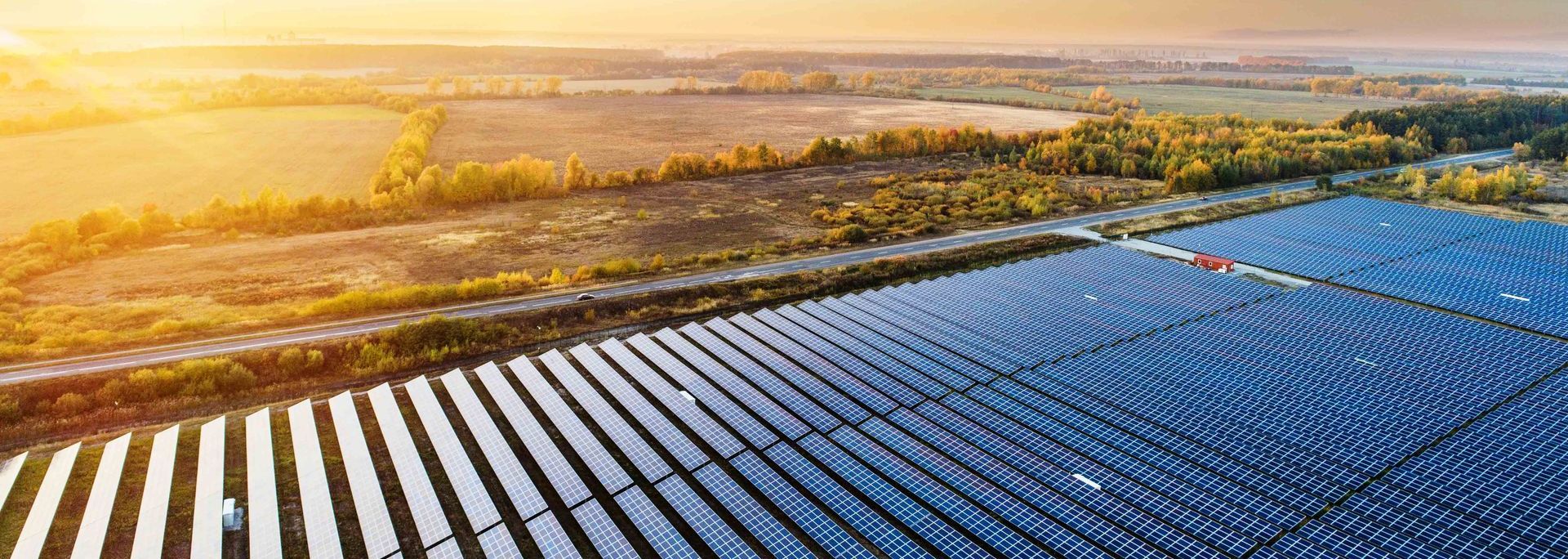Rising Fixed Charges on Import Power Supplies
What do the acronyms DUoS and TNUoS mean?
Guidance for renewable generators
Distribution Use of System (DUoS) and Transmission Network Use of System (TNUoS) are fixed charges, which are increasing from April 2024. These charges apply regardless of energy used and thereby impact unfairly on generators with relatively low import.
How much will DUOS & TNUOS increase by?
It depends on your apparent power
Optimised are here to help with guidance on what you need to know and how to mitigate impacts. On average, costs are increasing by £4,050 (for 100kVA supply) and £11,729 (for 500kVA supply).
In the table below, our experts present the current and new rates, and the costs incurred based on supplies with an available capacity of 100kVA and 500kVA.
kVA (Kilo-volt-amperes) is a measure of apparent power. This accounts for inefficient output where the kVA is below 100% and therefore less than kW (Kilo-watt) output.

How are energy exporters impacted?
Depending on your ENERGY contract
If you are on a fixed contract, this should not impact your costs until you renew, but if you are on a pass-through contract, you will see them on your April bill.
What are the next steps?
Optimised are experts on renewable generators
Fixed charges can be reduced if your site is non-final demand. Classification of a non-final demand site is listed below and if you believe you qualify, please get in touch to see how we can assist.
- Have electricity generation
- Only export electricity from your electricity generation or storage assets
- Only import electricity to operate your generation and storage assets
Furthermore, Optimised can help prepare and mitigate impacts, by developing a strategy and tapping into our support packages to manage and reduce energy costs.
Custom Cost Mitigation Plans:
Tailored strategies to minimise the impact on your electricity bills.
In-Depth Analysis:
We've crunched the numbers for you, to help you understand the specific changes in your area.
Strategic Consultation:
Proactive measures to navigate and optimise your energy consumption.
Reach out for a consultation to safeguard your business from unexpected electricity cost hikes. Let's explore how we can tailor solutions to your unique needs.
RECENT NEWS
BOOK YOUR 30-MINUTE ENERGY MANAGEMENT CONSULTATION
Fill in your details below to arrange a complimentary consultation with one of our experts. They will give you bespoke advice to help your business achieve all its energy needs, reducing cost, consumption and carbon.












